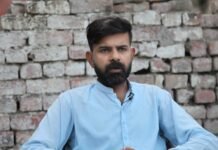Neurodiverse clergy are often reluctant to disclose their diagnosis because they worry about being overlooked for ordained ministry, a church leader says.
They often struggle to gain acceptance in their leadership roles, but believe they bring unique gifts of creativity, inventiveness and insight into their work.
Deputy Warden of Wollaston Theological College Reverend Dr Christy Capper warned that some people were worried about talking with their diocese about their neurodiversity out of fear they wouldn’t be given a parish.
Dr Capper was diagnosed with ADHD in the last 12 months and is building a community to support neurodiverse clergy.
For Dr Capper, having a diagnosis meant she could identify areas where she needed support. Her workplace was helpful, but she was aware that not everyone shared her experience.
She said even people who had been ministering successfully for a while were reluctant to share their diagnoses with people in authority.
Dr Capper said she met people in many dioceses who were neurodiverse but not comfortable sharing it.
She also heard accounts of people’s suitability for ordination being questioned after they disclosed that they were neurodiverse.
Reverend Canon Professor Dorothy Lee was 71 when she was diagnosed with ADHD. She said it was a shock but it helped explain behaviours for which she had previously judged herself.
“I was fortunate in the way I got away with it being an academic for those years,” she said. “The ADHD diagnosis helped tremendously to enable me to understand it in a very different framework.”
Professor Lee said her diagnosis helped her to be more aware of neurodivergence in other people.
“I think the church has become much more inclusive,” she said.
“Neurodivergent people bring other gifts, and perhaps more intense forms of other gifts to the table that the church actually needs,” she said.
“We need to have a real understanding of people, of the diversity that lies within,” she said.
Mental health social worker Dr Katherine Thompson said it wasn’t the diagnostic label that mattered but learning how to use a diagnosis to help people live in a healthy way and thrive in their ministry.
She said it raised interesting questions about how society saw neurodiversity in general.
“You could have ADHD or autism, and you could actually have a great, flourishing, thriving life,” she said.
“I think this is a deeper problem in the church that we’ve been silenced,” she said. “All the tricky issues…They’re uncomfortable, but they’re part of our human experience.” said.
“We need to have a real understanding of people, of the diversity that lies within,” she said.
Mental health social worker Dr Katherine Thompson said it wasn’t the diagnostic label that mattered but learning how to use a diagnosis to help people live in a healthy way and thrive in their ministry.



